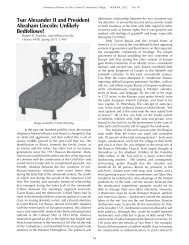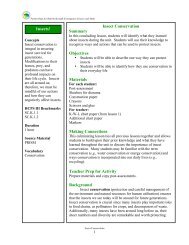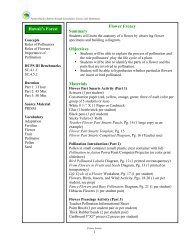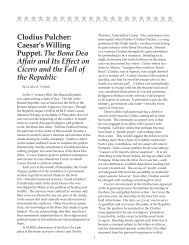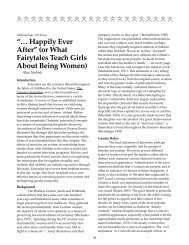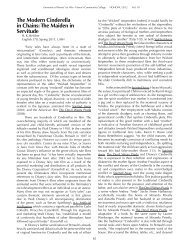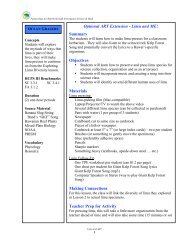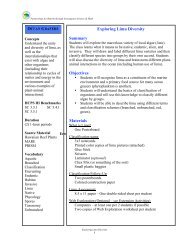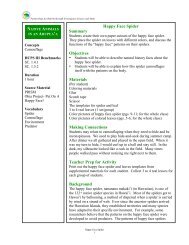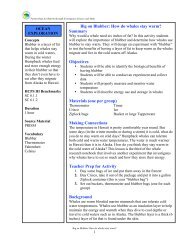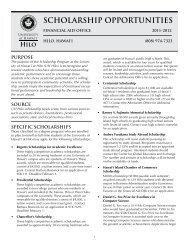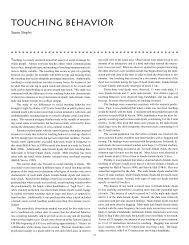A JOURNAL OF ACADEMIC WRITING VOLUME 8
A JOURNAL OF ACADEMIC WRITING VOLUME 8
A JOURNAL OF ACADEMIC WRITING VOLUME 8
Create successful ePaper yourself
Turn your PDF publications into a flip-book with our unique Google optimized e-Paper software.
middle path of Zen avoids the extremes of permanence and<br />
impermanence. Thus, it is easy to be confused when reading<br />
Zen teachings on the importance of both permanence and<br />
impermanence. The extreme of permanence can be likened to a<br />
view of eternalism while the extreme of impermanence can be<br />
likened to a view of nihilism. For Dōgen though, permanence<br />
is understood as, “nonturning or nondualism,” (Kim 135).<br />
Kim goes on to quote Dōgen, saying, “Nonturning means that<br />
whether we overcome delusions or are conditioned by them,<br />
we are never attached to the traces of their coming and going.<br />
Hence, this is called permanence.” Much of Buddhist practice<br />
boils down to thoroughly investigating the impermanence<br />
that is the Buddha’s Four Noble Truths with a grounded bodymind<br />
of the permanent and non-attached nature described<br />
by Dōgen. This practice, when done whole-heartedly, is<br />
the enlightenment that is sought, and is thus being-time.<br />
Permanence (nondualism) and impermanence (dynamism) are<br />
then both contained in the ever-present moment, being-time,<br />
which is altogether momentary.<br />
Finally, we come to the magnum opus of Mahayana<br />
Buddhism, Buddha-Nature, in the context of being-time.<br />
Indeed, the question of Buddha-Nature was the driving<br />
force of young Dōgen’s spiritual adventure. “If we already<br />
possess the Buddha-Nature, what need is there to practice?”<br />
(Strambaugh 21). To answer the question, the question must<br />
first be analyzed. As stated, it is implied the Buddha-Nature<br />
is something to be possessed, something with substance and<br />
therefore temporal duration. However, all things lack an abiding<br />
substance, and no thing exists in the sense of a continuation<br />
from one moment to the next. Some schools interpret the<br />
Buddha-Nature as a potentiality, a seed of sorts, which will bear<br />
fruit at some time when the right conditions are met. However,<br />
this lends itself to the conceptualization of the Buddha-Nature<br />
actualizing itself at some time in the future. How can this be<br />
if all things are expressed as they are only in the present? Yet,<br />
Dōgen presses that Buddha-Nature does not, “appear for the<br />
first time upon enlightenment,” (21). How can Buddha-Nature<br />
spontaneously arise in the present moment without previously<br />
existing in some sense beforehand? Perhaps Dōgen himself can<br />
shed some light (22),<br />
By way of illustration, if you wish to know the Buddhanature’s<br />
meaning might be read, you are directly knowing<br />
the Buddha-nature’s meaning. You should watch for temporal<br />
conditions means you are directly knowing temporal conditions.<br />
If you wish to know the Buddha-nature, you should know that<br />
it is precisely temporal conditions themselves.<br />
Here Dōgen asserts Buddha-Nature is not separate from<br />
temporal conditions, and this assertion falls in line with so<br />
many other of Dōgen’s claims. Buddha-Nature does not abide<br />
in previous conditions, waiting to be realized spontaneously<br />
in some future condition. It is not some substance that<br />
transmigrates moments as a potential seed of awakening.<br />
Buddha-Nature is not separate from the temporal conditions<br />
of the present moment. It does not come to fruition after right<br />
practice, does not actualize at the moment of enlightenment.<br />
The Buddha-Nature is tathatā; it is self-impeding and<br />
impermanent. The Buddha-Nature is the resolve, practice,<br />
enlightenment and detachment of the Buddha Way. Buddha-<br />
Nature is being-time. As Dōgen might say, one does not see<br />
one’s original-face without practice, one does not recognize<br />
himself as time without “forgetting oneself” and “casting off the<br />
body-mind” (Nishiyama trans., Genjōkōan, 1).<br />
Dōgen is a unique character in the development of the<br />
Buddha Dharma, unique even with respect to the progression<br />
of human intellect. His religion and philosophy are quite linear<br />
in the scheme of eastern traditions, though he advanced them<br />
both by leaps and bounds in his home country of Japan. It<br />
wasn’t for hundreds of years until Western thinkers, particularly<br />
Spinoza and Heidegger, among others (Strambaugh, 23), began<br />
to come to terms with many aspects of metaphysics that Dōgen<br />
had already encountered and seemingly come to terms with.<br />
Therefore, Dōgen Zenji’s Shōbōgenzō (The Eye and Treasury<br />
of the True Law) is an acme piece of human wisdom, only a<br />
fraction of which is expressed here in regards being-time.<br />
Bibliography<br />
Kim, Hee-Jim. Dōgen Kigen: Mystical Realist. Tuscon 1987.<br />
Nishiyama, Kōsen, and John Stevens, trans. Shōbōgenzō. Vol. 1.<br />
Tokyo, 1975.<br />
Stambaugh, Joan. Impermanence is Buddha-nature: Dōgen’s<br />
Understanding of Temporality. Honolulu, 1990.<br />
HOHONU Volume 8 2010 - 89



